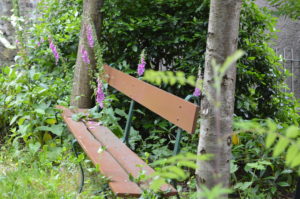In my chapter “Waiting for the revolution” published in 2013 in Reconceptualizing Care and Education: Critical questions, new imaginaries and social activism. a book edited by Mimi Bloch, Gaile Canella and Beth Swadener for Peter Lang Publishing, I review some of the papers that I wrote over the past 20 years about the nature of childhood. Many of these papers were presented at RECE conferences and while some were published in other forms, some were never published. The original papers can be downloaded by clicking the titles below.
Furthermore, due to space constraints, the entire bibliography for my chapter could not be published If you would like to view or download the complete bibliography, please click here. In particular, the references mentioned in the following paragraph could not be included in the chapter, but are included in the longer reference list that is linked here:
What distinguishes this notion of inheritance and genealogical filiation (cf. Apfelbaum, 2002) is the dynamic nature of the pasts that are imaginable, and the potential, given optimal pedagogical or child-rearing conditions, for a particular child to explore gaps, fissures, points of rupture, and openings to multiple ways of experiencing and entering into possible subjectivity. Students of hauntology (e.g., Blackman, 2001, 2002; Gordon, 1997); scholars of indigenous epistemologies and practices (e.g. Allen, 1998; Archibald, 2008; Atkinson, 2002; Battiste, 2000; Duran & Duran, 1995; Durie, 2003; Fixico, 2003; Graveline, 2008; Hulan & Eigenbrod, 2008; King, 2003; Mohatt & Eagle Elk, 2002; Ross, 2006) and scholars who analyze sociohistorical apsects of experience psychodynamically (e.g., Abraham & Torok; Atkinson, 2002; Charles, 2003; Coles, 2011; Cyrulnik, 2005; Davoine and Gaudillière, 2004; Emery,2002 ; Faimberg, 2005; Fraiberg et al., 1975; Garon, 2004; Grotstein, 1995a,b; Kaplan, 1995; Lear, 2006; O’Loughlin, 2008, 2009b, 2010a, 2012, 2013d; Pisano, 2012; Tracey, 2013) have all contributed to specifying the architecture of the cryptic spaces in which such knowledge resides and pointing out the straitjacket in which growth is placed if the dynamic and spectral origins of experience are delimited, discarded or ignored.
O’Loughlin, M. (2006, November) Recreating the social link between children and their histories: Revisiting ghosts in the nursery and exploring the power of story as a decolonizing strategy. In M. O’Loughlin & R. Johnson [Symposium organizers], Troubling decolonization: The radical(?)potential of a pedagogy of Disorder for young children. Presented at Fourteenth Annual Conference, Reconceptualizing Early Childhood Education: Research, Theory & Practice, Rotorua, New Zealand.
O’Loughlin, M. (2005, October). Constructing a liveable subjectivity: Hauntology as the basis of a pedagogy for young children. In M. O’Loughlin [Organizer] When language is the subject: On the spoken and unspoken in children’s coming to be. Presented at Thirteenth Annual Conference, Reconceptualizing Early Childhood Education: Research, Theory & Practice, Madison, WI.
O’Loughlin, M. (2004, May). Through a glass darkly: Troubling memories of loss, desire, belonging, and lack, then and now. In M. O’Loughlin [Organizer], Oh me, oh my! Troubling shame, loss and phantasy in childhood. Presented at Twelfth Annual Conference, Reconceptualizing Early Childhood Education: Research, Theory & Practice, Oslo, Norway.
O’Loughlin, M. (2003, January). Strangers to ourselves: The decolonizing potential of the displacement, loss, and “homelessness” of migrant experiences. In M. O’Loughlin [Organizer], “On being homeless”: The decolonizing possibilities of displaced lives and fractured subjectivities. Presented at Eleventh Annual Conference, Reconceptualizing Early Childhood Education: Research, Theory & Practice, Tempe, AZ..
O’Loughlin, M. (2001, October). The subject of psychoanalysis: Thoughts on subjectivity, subjection, and a role for psychoanalysis in articulating liberatory understandings of the possible lives of children. Presented at Tenth Annual Conference, Reconceptualizing Early Childhood Education: Research, Theory & Practice, New York.
O’Loughlin, M. (1995, May). Six propositions concerning children, their growth, and the language we use to describe them. M. O’Loughlin Organizer, If not child development, then what?: Exploring the possibilities of dialogic and sociocultural theories for our understanding of the growth and education of children in communities and schools. Presented at Reconceptualizing Early Childhood Education, Research, Theory, and Practice: Fifth Interdisciplinary Conference, Santa Rosa, CA.
O’Loughlin, M. (1994, September). Making the case for culturally relevant pedagogy. Paper presented at Reconceptualizing Early Childhood Education: Research, Theory and Practice: Fourth Interdisciplinary Conference, Durham, New Hampshire.
O’Loughlin, M. (1994, September). On the virtues of disobedience: The possibilities of the margin as a site of radical change in schools and universities. Paper presented at Reconceptualizing Early Childhood Education: Research, Theory and Practice: Fourth Interdisciplinary Conference, Durham, New Hampshire.
O’Loughlin, M. (1993, April). Developing a rationale for emancipatory knowledge construction: Five questions for constructivists. In F. Peterman (Organizer), Restructuring constructivism: A conversation about constructivism, teacher education, and the classroom ecology. Symposium presented at the Annual Meeting of the American Educational Research Association, Atlanta, GA. Also presented at the Sixty-sixth Annual Meeting of the National Association for Research in Science Teaching, Atlanta, GA [1993, April].
O’Loughlin, M. (1992, September). Appropriate for whom? A critique of the culture and class bias underlying developmentally appropriate practice in early childhood education. Paper presented at the Second Conference on Reconceptualizing Early Childhood Education Research, Theory, and Practice: Reclaiming the Progressive Agenda in Early Childhood Education, Chicago, IL.
O’Loughlin, M. (1991, October). Rethinking early childhood education: A sociocultural perspective. In J. Jipson (Chair), Deconstructing constructivism. Paper presented at the First Conference on Reconceptualizing Research in Early Childhood Education: Loosening the Ties that Bind, University of Wisconsin, Madison, WI.



